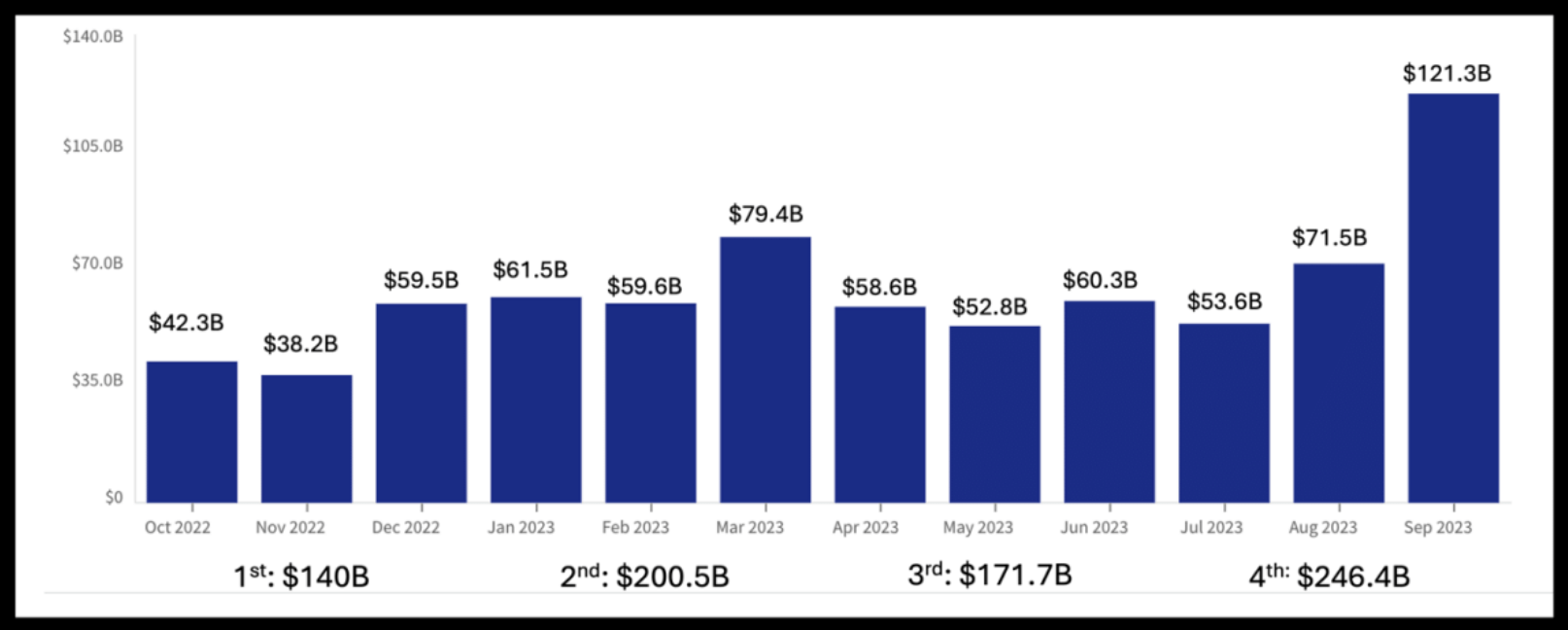The federal fiscal year begins on October 1st and ends on September 30th. The fourth quarter spans July, August, and September.
During fiscal year 2023, $758.6 billion was awarded to businesses, including federal contracts, with $246.4 billion occurring in the fourth quarter. This represents 32.4% of all spending. Ideally, each quarter should account for 25% of the annual spending. However, the fourth quarter presents the greatest opportunity to government contracts. The question is, are you ready to take advantage of the fourth quarter and secure your share of this spending?
The federal government has many programs to support small businesses in winning government contracts, including government IT contracts, federal and state construction engagements, defense projects, defense contract management, and more. One of the most powerful is the Mentor-Protégé Program (MPP).
Quite naturally on a team of majority men, I was volun-told to write the article for Women’s History Month. I am certain any of the men could have written a compelling article for the month, but I wanted the privilege to address the intersection of Women’s History and Government Contracting.
Why do we still celebrate Black History Month? What is the intersection of Black History and government contracting? Wait, don’t bypass this article because at first glance you think it doesn’t connect to you. It is worth reading. We all stand on someone’s shoulders in our life’s journey.
Subcontracting is an excellent pathway for businesses to enter the government contracting arena. Did you know that when a large prime contractor wins a contract over $750,000, or $1.5 million in construction, they are required to award 35% of that contract to small businesses? This
Government Contractors Association is thrilled to introduce the Emergency Webinar Addressing How to Write Your Social Disadvantage Narrative!
This week, the SBA celebrated its 70th birthday. However, one of its storied 50-year-old programs, the 8a Certification Program, may be on the verge of significant changes. The 8a Program, as we know it, will never be the same again.
Big changes may be coming to the 8(a) Certification Program known as 8(a) Business Development Program. It is part of the Small Business Administration (SBA) and is designed to assist small businesses that are economically and socially disadvantaged in gaining access to government contracts. For businesses currently in the 8(a) Certification Program or those planning on applying for entrance into the 8(a) Program, there are some potential major modifications on the way.
Juneteenth finds its roots in the aftermath of the American Civil War. On June 19, 1865, Union General Gordon Granger arrived in Galveston, Texas, and proclaimed the end of slavery, two and a half years after the signing of the Emancipation Proclamation. This delay in emancipation reaching Texas is attributed to the limited presence of Union troops and the resistance of slaveholders in the region. The news of freedom was met with joy and jubilation by the African American community, and the day became a symbol of hope and progress.
The White House plans to significantly increase the share of federal contracts awarded to Small Disadvantaged Businesses (SDBs) by 50% by 2025. This ambitious goal translates to awarding an additional $100 billion to SDBs over the next five years. Currently, the target for SDBs is set at 5% of federal contracting dollars, but recent data shows that federal agencies have been exceeding this goal, awarding an average of 9.8%. The new goal aims to raise this share to nearly 15% by 2025.
Teaming and joint venture agreements are powerful tools often utilized by successful businesses in the government market. Although each agreement may seem straightforward, there are significant differences between them. The SBA has recently implemented new rules applicable to both agreements, so contractors should be aware of these essential differences.
Join the GCA Family
Only 22% of federal contracting dollars are awarded to small businesses. Our goal is to be an agent of change by helping businesses owned by women, minorities, and veterans to get their fair share of the opportunities in the government market.











